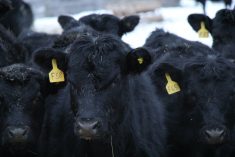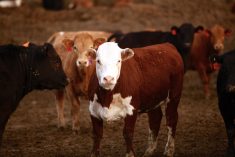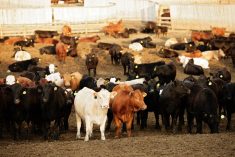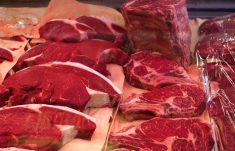South Korea’s temporary ban on imports of Canadian beef and veal, imposed after Canada’s discovery of a 19th case of BSE in February, has been lifted as of Wednesday.
Agriculture Minister Lawrence MacAulay and Trade Minister Chrystia Freeland announced the Korean government’s decision Thursday.
South Korea had re-imposed its ban on Canadian beef after the discovery of Canada’s Case 19 — an Alberta beef cow and the first case of BSE to be born in Canada after an “enhanced” federal feed ban took effect in 2007.
Case 19 didn’t affect Canada’s status as “controlled risk” for BSE, as per World Organization for Animal Health (OIE) standards for beef safety, but Korea and a handful of other countries put up temporary bans pending the results of the Canadian Food Inspection Agency’s BSE investigation.
Read Also

U.S. grains: CBOT soybeans, corn, wheat fall in USDA data aftermath
Chicago grains took a dive on Friday, following a closely watched U.S. government crop report and the release of export data that could provide clues into Chinese buying.
South Korea had been Canada’s fourth-biggest export market for beef in 2002, prior to the discovery of Canada’s first domestic case of BSE — after which Korea closed its ports to Canadian product until 2012.
In 2014, South Korea was Canada’s sixth biggest beef buyer, taking $25.8 million in imports, which made Canada the fourth-biggest shipper of beef into the South Korean market after Australia, the U.S. and New Zealand.
“South Korea holds huge potential for beef and especially cuts and offals that are underutilized here at home,” Canadian Cattlemen’s Association president Dave Solverson said in the federal government’s release Thursday.
“Korea is a market that will pay more for those select items and that helps to increase the overall value of the animal for producers.”
“South Korea is an important market for Canadian exporters and this positive development is a testament to our close commercial relationship,” Freeland said in the same release, noting Jan. 1, 2016 marks the one-year anniversary for the Canada-Korea Free Trade Agreement.
Combined with the free trade pact, Seoul’s announcement “allows Canadian beef and veal exporters to begin the process of reclaiming a greater share of the important Korean market,” Matt Gibney, chair of the beef, veal and lamb committee of the Canadian Meat Council, said in a separate release Thursday.
With 50 million “mostly middle-income” consumers, and beef and veal import demand worth US$1.7 billion per year, the South Korean market is “highly coveted by all of the globe’s major beef exporting nations,” he said.
CMC executive director Jim Laws, in the same release, noted projections that South Korea will import over 400,000 tonnes of beef and veal during 2016.
“Successful completion of the technical discussions (to lift the ban) permits this country’s packers and processors to not only renew, but also to further intensify our relationships with Korean importers and consumers,” Laws said. — AGCanada.com Network














